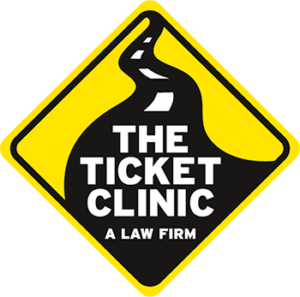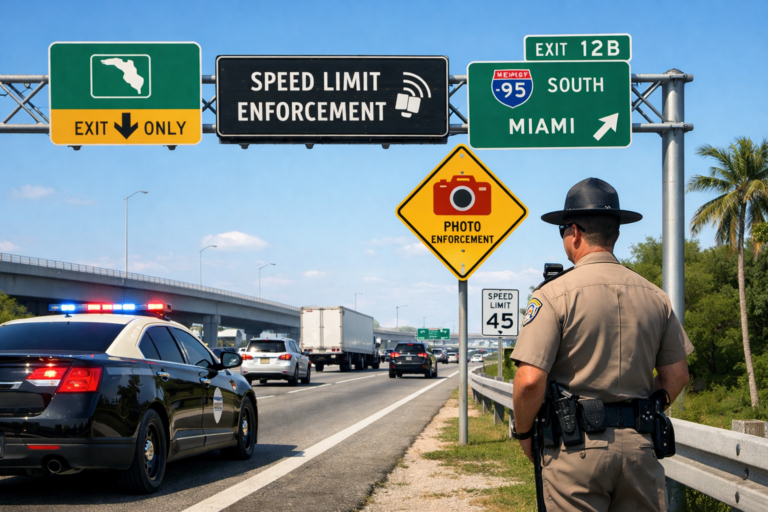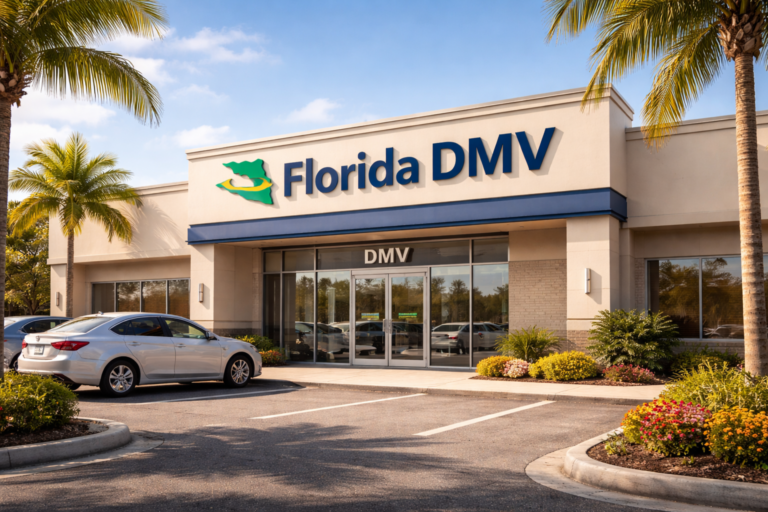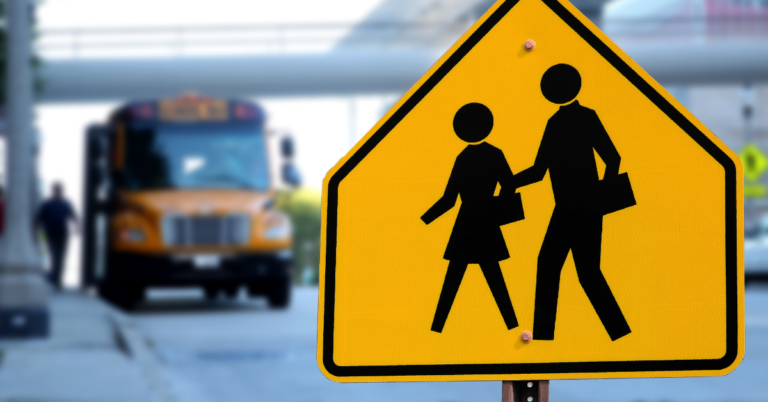Starting July 1, Florida is rolling out something that’s bound to raise eyebrows, pulse rates, and possibly insurance premiums—a brand-new Super Speeder Law. This isn’t some bureaucratic tweak. It’s a line in the sand. Go over 100 mph or exceed the posted speed limit by more than 50 mph and you’re in serious trouble. Not just a fine kind of trouble. We’re talking jail.
First offense? Up to 30 days behind bars and a $500 fine. Do it again within 12 months? That ramps up to 90 days in jail, a $1,000 fine, and maybe a suspended license for a whole year. It’s strict. It’s loud. And it’s meant to scare you straight.
The law’s designed to target not just fast drivers but extreme speeders—the ones who treat highways like personal racetracks. But is Florida doing something brand new? Not really. It’s just taking a play from a few other states and cranking the volume.
Georgia’s been ahead of the curve here. It uses the Super Speeder label to single out drivers who go 75 mph or more on a two-lane road or 85 mph or more on any road. If you hit either of those numbers, you owe an extra $200 state fee on top of your regular fine. Forget to pay it? Your license is suspended. It’s all very automated, very clean—but still pretty tough. Got a ticket in Georgia? We can help you there too!
Florida’s new rule, though, doesn’t care whether you’re on a rural road or a six-lane freeway. If your speed climbs high enough—past 100 mph or way over the posted limit—it becomes criminal. And that’s what really separates Florida from Georgia. The moment you go from fast to “reckless in the eyes of the law,” you’re now subject to jail time. A courtroom. A judge.
Do Other States Have Similar Laws?
Virginia doesn’t have a Super Speeder label, but they don’t need one. They’ll hit you with a reckless driving charge just for going 20 mph over the limit—or anything above 85 mph. That’s a misdemeanor, by the way. Same kind of charge you’d get for shoplifting or bar fighting. It stays on your record. For years. So even without flashy names, Virginia’s a place where fast driving gets real serious, real quick.
New Jersey and Delaware keep things a little simpler. Their max speed limits tend to top out around 65 mph. And while they don’t have special categories like “super speeder,” they enforce limits with a steady hand. You won’t face jail just for going 90 mph on the freeway, but you’ll still get a ticket that hurts your wallet, your points, and your insurance rates. There’s no fancy branding, but the enforcement is consistent.
| State | Threshold condition | What earns “Super Speeder” label | Penalty mechanism |
|---|---|---|---|
| Florida | 100 mph or +50 mph over limit | Yes | Jail (30–90 days), $500–1,000 fine, license risk |
| Georgia | ≥75 / 85 mph regardless of limit | Yes | Extra $200 state fee + regular penalties |
| DE/VA/NJ | None beyond posted limits | No | Standard ticketing/fines |
Now swing the camera to the opposite corner of the country.
In places like Texas, Montana, and Idaho, the whole relationship with speed is different. Texas famously has an 85 mph posted limit on parts of State Highway 130. That’s the highest legal speed in the United States. Elsewhere in the state, you’ll regularly see signs allowing 75 or 80 mph. People out there like room to roam.
Montana and Idaho? They’ve both got 80 mph limits on rural interstates too. In fact, Montana used to let drivers figure it out for themselves—“reasonable and prudent” was the rule in the daytime. That’s gone now, but the state still doesn’t blink at a well-behaved driver cruising at 80. Even Utah gets in on this; there are stretches where 80 is the norm.
But here’s the twist: none of these states throw jail time into the mix just for exceeding a certain speed. They might hit you with a fine, sure. They might add points or even suspend your license if you keep it up. But they don’t flip the switch into criminal mode unless there’s something else involved—reckless weaving, endangering others, intoxication. Florida’s doing something much more aggressive.
So why the sudden heat?
It comes down to numbers. Since 2020, speed-related fatalities have been on the rise across the country. With emptier roads during lockdowns and fewer patrol cars around, more people started pushing the gas harder. And not just a little harder—some folks were clocked at 110, 120, even 130 mph. It turned into a trend. A dangerous one.
It appears legislators in Florida looked at that trend and said, enough. It’s possible they might not have thought of all of the ripple effect involved with sending hoards of traffic violators to jail and through the court system. They didn’t want to wait until the statistics got worse. So they introduced this new law, aiming straight at the most extreme offenders.
And make no mistake—it’s going to affect tourists too. Florida’s highways are full of out-of-state plates. People visiting from New York, Georgia, even Canada. Folks on vacation, maybe blasting music with the windows down, not noticing that needle creeping past 95 mph. They’re just as vulnerable under this new rule. Doesn’t matter where your license is from. If you’re driving in Florida and you break the threshold, the consequences land right on your head.
It’s easy to see both sides here. On one hand, laws like this can save lives. On the other, they might scare people into thinking every fast drive is a potential criminal offense. But that’s the tension in traffic enforcement today—how much is too much? And how much is not enough?
What’s clear is that the U.S. doesn’t have a unified way of handling speed. One state’s speeder is another state’s law-abiding driver. It creates a kind of legal whiplash as you cross borders. Florida’s stepping up enforcement in a way that’s bold, maybe harsh, definitely headline-grabbing.
So keep your foot light and your eyes on the speed signs. Because that stretch of open highway might look like an invitation—but in Florida, it might also be a trap.
If you’ve been cited for a super speeder violation, contact us for a free consultation.
What Our Clients Are Saying About Us?




The Ticket Clinic Team
We are the largest law firm in the United States to focus soley on traffic-related offenses and traffic tickets. Over +35 years in business, we have developed deep knowledge about traffic court procedure and traffic laws Our goal is to help keep drivers stay informed about legal issues that could affect them on the road. In our blog content, we like to explore insights in traffic ticket trends and other related issues.



